i bc27f85be50b71b1 (179 page)
Read i bc27f85be50b71b1 Online
Authors: Unknown

inflammatory bowel disease, carcinomas, variolls infections, and
rheumatic disorders have been highly associated with the development of [gA nephropathy.9.18.22.23
Signs and symptoms of IgA nephropathy include the
following9.18.22.2J:
•
Hematuria
• Proteinuria
• Oliguria
Management of IgA nephropathy includes the administration of
any of the following9.18.n

GENITOURINARY $Y$TE.."l.
575
• Anti-inflammatory agents, such as ora) glucocorricoids (prednisone)
• Angiotensin converting enzyme (ACE) inhibirors
• Cytotoxic agents
• Fish oils (effectiveness is controversial)23.24
Postinfectious C lomeTII IOlleph ritis
As the name states, postin(ectiolls glomerulonephritis is acute inflammation in the renal system that occurs after infection. Group (X.- and
�-hemolytic streprococci are the common causative pathogens that
lead ro the damage of surface proteins in the glomeruli.9,ls,',.25 Other
organisms that have been associated with this form of acute glomerulonephritis include hepatitis B virus, hepatitis C virus, and human immunodeficiency virllS; spirochetes, slich as Treponema pallidum;
protozoa, such as Plasmodium Inalariae; and fungi, such as Candida
albicalls." Prognosis is generally good once the causative agent is
identified and appropriate anti-infective and supportive therapies are
provided.2'.,s
Signs and symptoms of poststreprococcal glomerulonephritis
include the foliowing'·18.25;
• Acute onset of fluid retemion, hypertension, and peripheral
edema
• Oliguria
• Hematuria
• Mild to moderate proteinuria
• Anemia
• Cola-colored urine with red blood cell casts
Management of poststreprococcal glomerulonephritis includes any
of the following9.18.25;
• Antibiotics
• Antihypertensive agents
• Diuretics


576
AClTTE CARE HANDBOOK FOR PHYSICAl THERAPISTS
• Fluid and electrolyte suppOrt (as needed)
• Hemodialysis (as needed)
Rapidly Progressive Clomemlollephrilis
Rapidly progressive glomerulonephritis (RPGN) is also known as
subacute, crescentic, or extracapillary glomerulonephritis. It involves
glomerular inflammation that progresses to renal failure in a few days
or weeks." This disease primarily affects adults who are in their fifties
and sixties and has a relatively poor prognosis. Early detection is critical to effective therapy and patient survivaI.2'.,. Causes of RPGN can include acute or subacute infection from �-hemolytic streptococci or
from other bacteria, viruses, or parasites. It can also be caused by
multisystem or autoimmune disease.9,18,25
Signs and symptoms of RPGN include the following"IS.,,:
• Rapid, progressive reduction in tenal function
• Severe oliguria
• Anuria, with irreversible renal failure
Management of RPGN includes any of the following'·18.26:
•
Anti-inflammatory agents (e.g., prednisone)
• Plasma pheresis
• Anticoagulation treatment
• Hemodialysis
• Renal transplantation
Chrollic G/omemlollephritis
Chronic glomerulonephritis is the culmination of diseases that can
affect the glomeruli leading to progressive renal failure in 10-20
years. These diseases include those mentioned in the previous section,
along with diabetes, hepatitis, and systemic lupus erythematosus.2'
Chronic glomerulonephritis involves scarring and obliteration of the
glomeruli, along with vascular sclerosis of arteries and arterioles.9,ls
Signs and symptoms of chronic glomerulonephritis include the
following',18:


GENn·OURJNARY SYSTEM
577
• Uremia
• Proteinuria
• Hypertension
• Azotemia
Management of chronic glomerulonephritis includes any of the
following9•18;
• Treatment of primary disease or dysfunction
• Administration of steroidal anti-inflammatory agents
• Administration of anti-infective or cytotoxic agents, or both
• Dialysis
•
Renal transplantation
Other types of glomerulonephritis are minimal change disease
(lipoid nephrosis), focal segmental glomerulonephritis membranous
nephropathy, and membranoproliferative glomerulonephritis (slowly
progressive glomerulonephritis).7 These are not discussed in this
chapter, because they have similar clinical manifestations as the types
of glomerulonephritis discussed previously.
Nephrotic Syndrome
Nephrotic syndrome is a group of symptoms characterized by an
increased permeability of the glomerular basement membrane that
results in excessive excretion of protein molecules, which ultimately
leads to reduced osmotic pressures that can result in peripheral
edema. J\!lany conditions can lead to nephrotic syndrome, including
the followings.9•16;
• Acute glomerulonephritis (lgA nephropathy)
• Diabetes mellitus
• Amyloidosis
• Infections (human immunodeficiency virus, hepatitides B and C)
• Circulatory diseases

578
AClITE CARE HANDBOOK FOR PHYSICAL THERAPISTS
• Allergen or drug reactions (nonsteroidal anti-inflammatory
agents, penicillin, captopril, heroin)
o
Pregnancy (pre-eclampsia)
o
Chronic allograft rejection after renal transplantation
Physical findings of nephrotic syndrome include the following8.9.26:
• Hypoalbuminemia
o
Generalized edema
o
Hyperlipidemia
o
Lipiduria (lipid casts or free fat droplets in urine)
o
Vitamin 0 deficiency
Management of nephrotic syndrome includes any of the
following8.9.28.29:
o
Treatment of underlying disease
• Administration of steroidal anti-inflammatory agents
o
Albumin replacement
• Diuretics
o
Anticoagulation therapy
•
Dietary modifications (e.g., normal protein, low fat, salt restrictions)
Interstitial Nephritis
Infection, urinary tract obstruction, and reactions to medications,
particularly nonsteroidal ami-inflammatory agents, can result in
inflammatory, intcrstirial tissue damage, which is referrcd to as interstitial nephritis.8.l0.ll Scarring from the inflammatory process leads to reduced kidney function that can progress to CRE Early detection is
helpful in treating the inflammatory response.'
Physical findings of interstitial nephritis include the following':
o
Polyuria
• Nocturia
